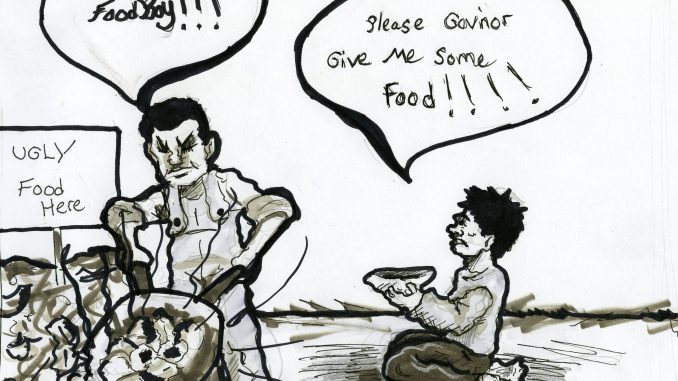
A week ago, Gov. Andrew Cuomo vetoed “farm to food bank” legislation that would, through a tax credit, incentivize farmers to donate excess produce to nearby food banks.
The bill was passed unanimously by the Assembly and the Senate in June, marking the second consecutive time in which Cuomo turned down the legislation. He initially vetoed the bill in 2015 because lawmakers didn’t include it in the budget.
In a statement, Cuomo argued that the bill was problematic in multiple ways, one of them being that the bill would give farmers a tax credit of up to 25 percent of the value of produce donated to food banks. Cuomo is concerned that the loss in tax credits would hurt New York State’s finances, and said that it is “nearly impossible” to come up with an accurate cost for the food, which would have a significant impact on the value of the tax break.
The New York Farm Bureau, (NYFB), expressed dismay toward Cuomo’s decision, which would establish a tax credit for donation of wholesome food to a food bank or other emergency food programs by eligible New York state farmers. The legislation would have a significant impact on the amount of fresh and healthy produce that could be distributed to those in need.
We at The New Paltz Oracle believe that Cuomo should have signed the bill, which would allow New York State to effectively address one aspect of the ongoing hunger crisis. Regardless of whatever objections Cuomo may have had with the bill, the underlying principle is no less significant. To be clear, if there is any action that the state can take to provide low-income households with a consistent nutritious food supply, while also curbing food waste, then those policies should be implemented.
We disagree with Cuomo’s complaints about the costs in reference to state revenue. While there are assumed costs of additional labor to harvest, package and transport more food, the tax credit would minimize expenses incurred in the name of charity.
Being a farmer in New York State is difficult enough given Earth’s changing climate and the rising costs associated with farming. Providing farmers, who perform an essential role in supplying adequate food to New Yorkers, with a tax credit is the common sense decision that our elected officials in Albany should make.
11.4 million pounds of food were donated to the NYFB in the past year, despite recent problematic growing seasons. The issue, then, is not a lack of motivation on the part of the farmers, but rather the financial strain of donating food sans the tax credit.
The epidemic of food insecurity—defined by the U.S. Department of Agriculture (USDA) as “limited or uncertain access to adequate food”—has been quite significant throughout New York State. According to National Geographic, the South Bronx has the highest rate of food insecurity in the country: 37 percent, compared with New York City’s 16.6 percent. But this isn’t just a New York problem. According to the USDA, in 2015, approximately 42.2 million Americans lived in food insecure households, totaling over 13 percent of the entire U.S. population that year.
Totaling only $27 a week, food stamps do little to remove the financial barriers of buying fresh produce. With 2.7 million New Yorkers relying on food programs to feed themselves and their families, donations should be encouraged now more than ever, and more will be needed to keep up with growing numbers. New York is an agriculturally-rich state and it is unacceptable that so much food goes to waste when millions could benefit from having it sent to food banks and pantries instead.
Those interested in supporting local anti-hunger efforts can visit UlsterCorps.org to find a list of local food pantries and soup kitchens in Ulster County—many of which can be accessed via Ulster County Area Transit.
